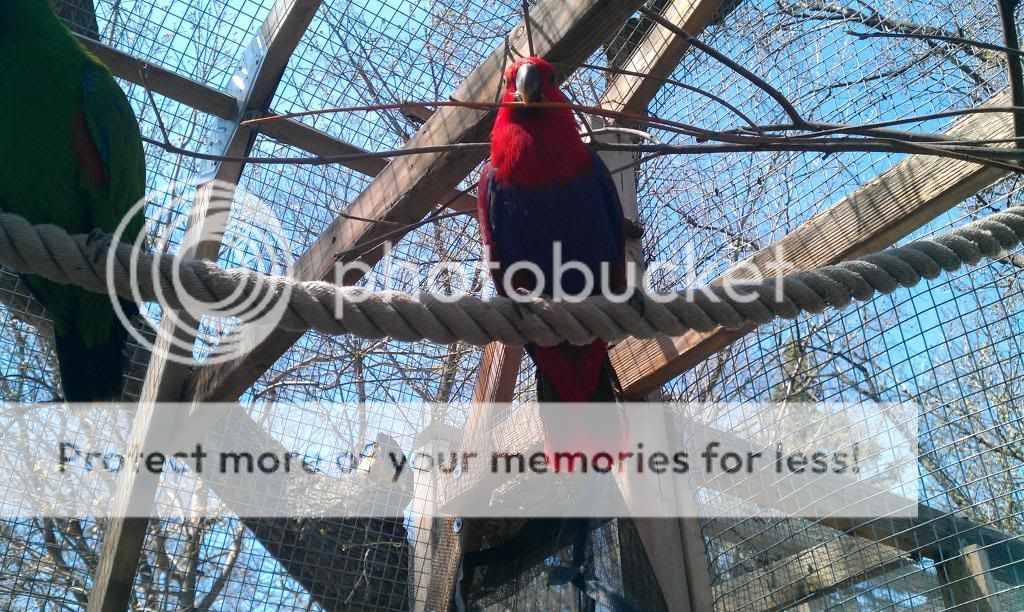Hi we have a Blue fronted amazon parrot and he has free roam of the house, but we wanted to do something special for him.
We are going to build him an inexpensive outdoor aviary. We already have wood for the frame of the aviary.
Will this wire mesh work for the aviary? Shop Blue Hawk 48-in x 50-ft Green Steel Hardware Cloth at Lowes.com=
It is from lowes. its holes are 2" by 3". Is that too big? It is also coated with vinyl, and I wanted to know if that is safe for him. It dosent look like it is coated with any zinc or anything. I don't think it is galvanized. But please check out the link to it above..^
We also wanted to know whether we should elevate it from the ground.. We are thinking of making it about 6-8' long and 3.5-4' wide. I am not sure whether to just keep it 48" tall, and just elevate the aviary, or make it 8' tall and keep the aviary on the ground with a wooden base?
How large would you make it for him? (blue fronted amazon parrot) and keep in mind the mesh is sold in rolls that are 4' tall and 50' long...
I am thinking about putting plants in the aviary.. would it be best to keep the aviary on the ground and plant the plants, or elevate the aviary on 4 legs and put potted plants in?
Will the wood base rot out if it is kept on the ground?
We are ONLY keeping him out there every now and then because we have a loving family inside haha!
Please post any comments/concerns in addition to answering my questions..
Thanks!!!!!!!!!!!!!!!!!!!
We are going to build him an inexpensive outdoor aviary. We already have wood for the frame of the aviary.
Will this wire mesh work for the aviary? Shop Blue Hawk 48-in x 50-ft Green Steel Hardware Cloth at Lowes.com=
It is from lowes. its holes are 2" by 3". Is that too big? It is also coated with vinyl, and I wanted to know if that is safe for him. It dosent look like it is coated with any zinc or anything. I don't think it is galvanized. But please check out the link to it above..^
We also wanted to know whether we should elevate it from the ground.. We are thinking of making it about 6-8' long and 3.5-4' wide. I am not sure whether to just keep it 48" tall, and just elevate the aviary, or make it 8' tall and keep the aviary on the ground with a wooden base?
How large would you make it for him? (blue fronted amazon parrot) and keep in mind the mesh is sold in rolls that are 4' tall and 50' long...
I am thinking about putting plants in the aviary.. would it be best to keep the aviary on the ground and plant the plants, or elevate the aviary on 4 legs and put potted plants in?
Will the wood base rot out if it is kept on the ground?
We are ONLY keeping him out there every now and then because we have a loving family inside haha!
Please post any comments/concerns in addition to answering my questions..
Thanks!!!!!!!!!!!!!!!!!!!

